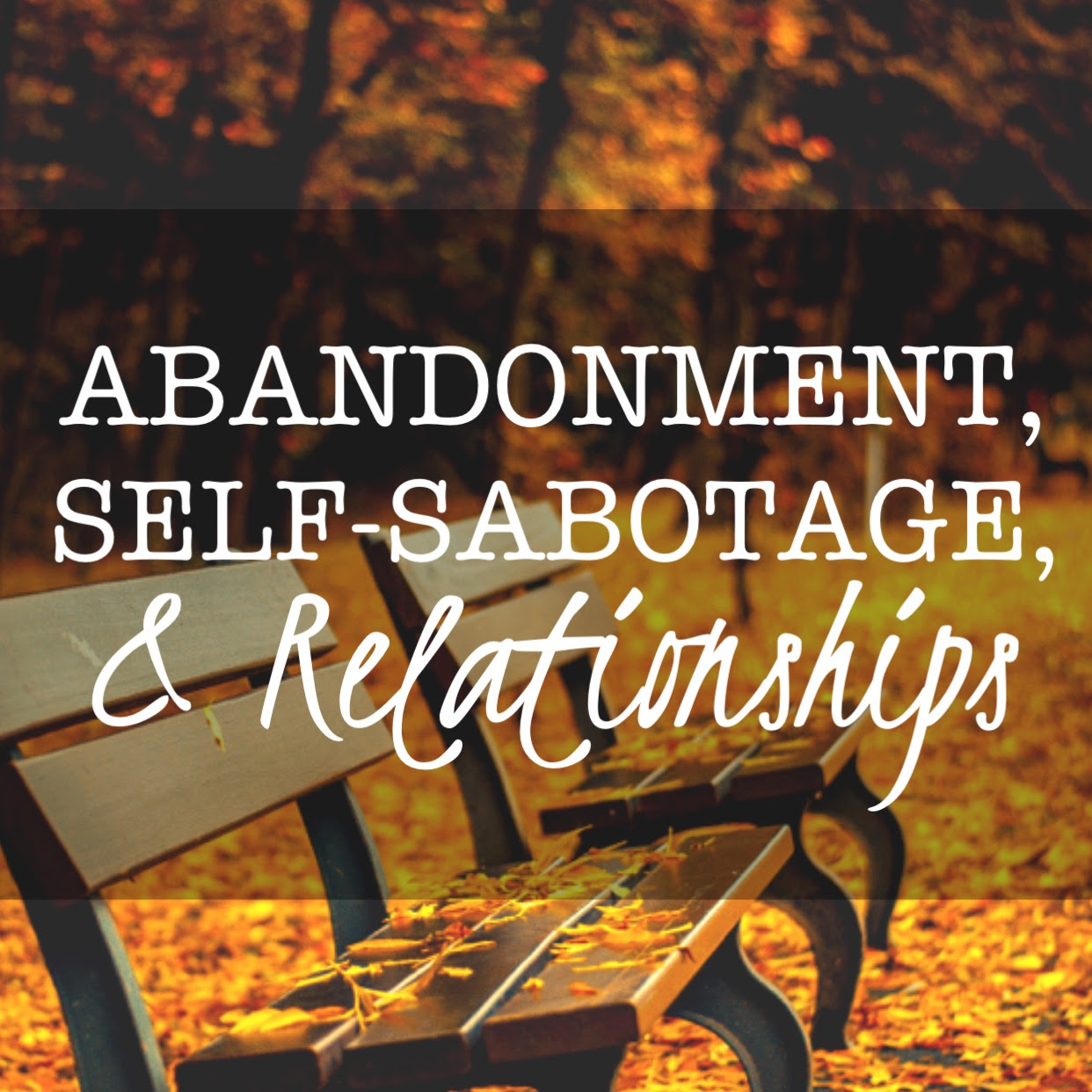
Abandonment, Self-Sabotage, & Relationships
Have you ever found yourself sabotaging relationships of your own or known someone who has? Self-sabotage is a common struggle that individuals may face in the process of building and maintaining relationships. Generally speaking, self-sabotage stems from self-abandonment. In other words, an individual struggles with loving themselves. Throughout our life, the more we struggle with self-limiting, self-defeating core beliefs of being unlovable and unworthy, the more we begin to become angry with ourselves and then actually abandon ourselves. These core beliefs, however, are the result of our fear of being abandoned by others, which might result in our sabotaging relationships, therefore confirming our core beliefs and fears.

Now don’t get me wrong, As humans, we have all felt rejected or abandoned to some point. Having abandonment fears is a universal feeling. This is why God tells us several times in his Word that He will never leave us or forsake us. (Deuteronomy 31:6, 31:8, Hebrews 13:5, Joshua 1:9, 1 Peter 5:7, Isaiah 41:10-14) Loving is risky business. When we invest in a relationship, we take on both the possibility of deeper intimacy and the risk of abandonment. Intimate love requires vulnerability. Self-sabotage is an instinctive protection response from rejection and abandonment.
“I’ll leave you before you leave me…”
Although a person may say they want to grow into a deeper relationship, their inner turmoil and fear of rejection and abandonment might cause self-defeating and self-sabotaging behaviors which actually reinforce the core beliefs and worldview that they will get hurt and that people cannot be trusted. Subsequently, they stay in their comfort zone. “Being rejected is familiar. At least I know what to expect.”
Step Outside of Your Comfort Zone
In order to heal from self-sabotaging behavior, we must confront our anxieties head on. This means stepping outside of our comfort zone and being committed to change. Sometimes, when faced with changing self-sabotaging behaviors, a person may swing the pendulum and become more clinging and smothering. This is a change of behavior, but it is still motivated by fear of abandonment and separation.
Preparation for change in relationships ultimately brings more personal satisfaction. However, the threat from change is that it can permanently alter our life as we’ve known it. Change in relationships can mean questioning our position in our family, our coping patterns, our core beliefs, and our identity. If there is something about our relationships that we desire to change, we can risk losing much of what is familiar if we actually change it. Often times, we can resist change just for this reason, but every time we give up something familiar, there is a loss.
So How Do I Break This Pattern?
Take an Inventory! On a piece of paper, you might consider writing out the following things that will probably change should you choose to resist self-sabotage when the urge arises. Consider the following:
My Feelings…
My Attitudes…
My Beliefs…
My Self-Image…
My Lifestyle …
… with my partner …with other relationships
… with my family …in my work or at school
Take an inventory of what you WANT to change, what you are NOT SURE you want to change, and what you would consider a LOSS.
Then look at the results. What surprised you? What are you most afraid to give up? What seemed easiest? What fears are holding you back? How are your fears affecting your commitment to change?
This inventory can be processed alone, with a trusted person, or you may choose to sit with a professional counselor. By becoming familiar with our destructive core beliefs and fears we can better get to know ourselves and avoid self-sabotaging relationships. Go on and step out of that comfort zone. You’re worth it.
Blessings,

Kathryn Manley, MS, LPC, CST
Individual, Family, and Marriage Counseling
Certified Sex Therapist (AASECT)





